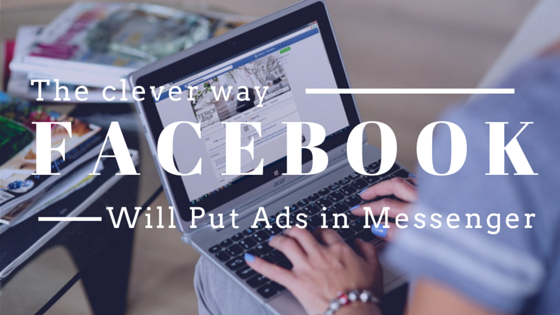
Social media outsourcing providers will have another trick up to their sleeves. The social media giant Facebook plans to put ads in Messenger. This was a hot topic since the first quarter of this year but how will Facebook pull it off? Isn’t it a bit invasive or distracting for users? Will it work like pop up ads out there that will disrupt the idle, quiet time while browsing? These are users’ concerns but for us entrepreneurs, we can’t wait to get our hands on it.
We no longer question the importance of mobile marketing in our business strategies and you will surely get strange looks from your peers if your company is not into it. It will be a great loss if you have passed the opportunity to engage with 900 million Messenger users. This free, stand-alone mobile app is only five years old but it already created waves in the world of social media. It can function as a texting platform where you can use your existing data plan. You can also access your Facebook messages and chats. This straightforward approach is what lures everyone to use this app.
Facebook advertising is not a new practice but it is the first time for Messenger and with a different twist. This was only a rumor circulating in the web from sites like Mashable and Tech Crunch. Well, we can’t accept that this is only speculation, so we dug further and here is what we found out:
Contextual Commerce
Expandedramblings.com says 72% Messenger users purchase products online. This is a promising number but shoving an ad to user’s screen is just not cool. What more if you’re intention is to make users buy your product and not just to market it? The answer to your dilemma is contextual commerce.
Contextual commerce breaks the barrier of the traditional way of purchasing. How is it different? Let’s say that you want to buy groceries: the first thing you have to do is create a shopping list, then go to the supermarket, navigate thru the aisles, stand in line, wait for your items to be scanned, etc, and you endure this same grueling scenario every week. This is not the case with contextual commerce.
As told by Bloomberg News, Facebook launched chat bots or automated personal shopping assistants. Yup. You no longer have to wait in queue because you don’t have to move even an inch from your couch to buy something. How is this possible? Clickz gave a sample situation: “If a user drinks one [energy drink] after each workout, they can use a wearable fitness tracker to log how many workouts they’ve done. After they’ve done 12 workouts, the tracker places an order at an online store… and a new 12-pack of [energy drink] is delivered to the user’s home.”
It’s a bit creepy but that’s how contextual commerce works. It also operates on wearable devices and even on smart thermostats as long as you’re connected in the Internet. However, this could have some potential breaches in privacy. What will Facebook do with this? We’ll have to wait and see. Or the moment a delivery man knocks on our doors.
Deep Text
More users in Facebook Messenger will use ‘buy,’ ‘sell,’ ‘purchase,’ ‘want,’ ‘need,’ and other related terms which pertains to buying and selling. Why? Deep Text happened.
The social media giant first introduced a technology that could describe pictures called “automatic alternative text.” According to their site, “it uses voiceover to read descriptions of photos out loud.” This is primarily developed to aid blind persons. Now, they’re utilizing textual information again.
We don’t know exactly how large the ‘big data’ Facebook stores in their databases is but this could be the next ‘big thing’ in mobile marketing. How does it work? Quartz explained that “Deep Text will help categorize and provide meaning for all the text, and could turn all that unstructured data into information it can use—and users can search… it can [be] use[d] more effectively to connect people with similar interests, sell more ads, and help people find things they’re looking for.”
For example, if you message something like “I need a pair of sneakers,” it will display pictures, stores and news stories involving sneakers. This is on the side of normal users. How about the business sector? Quartz says “if someone posts a message saying they’re selling something, FB’s commerce team will have all the information—the item, the price, the location, and so on—pulled from the post automatically, allowing the team to advertise services to help sell the item more easily.” In short, free ads!
Do you now understand why the terms we mentioned above will be the next buzzwords in Facebook Messenger?
Messenger is going to be more business-centric once these marketing strategies are fully rolled out. In order to utilize these features in Messenger, you have to improve your social engagement with your target customers and have an effective content marketing strategy. It creates a seamless avenue of reaching out to customers without the need of inviting them into the company’s website. In Messenger, as Ganador Management Solutions puts it, “it is a world without ads, because everything you see and read and interact with IS ALREADY the ad.